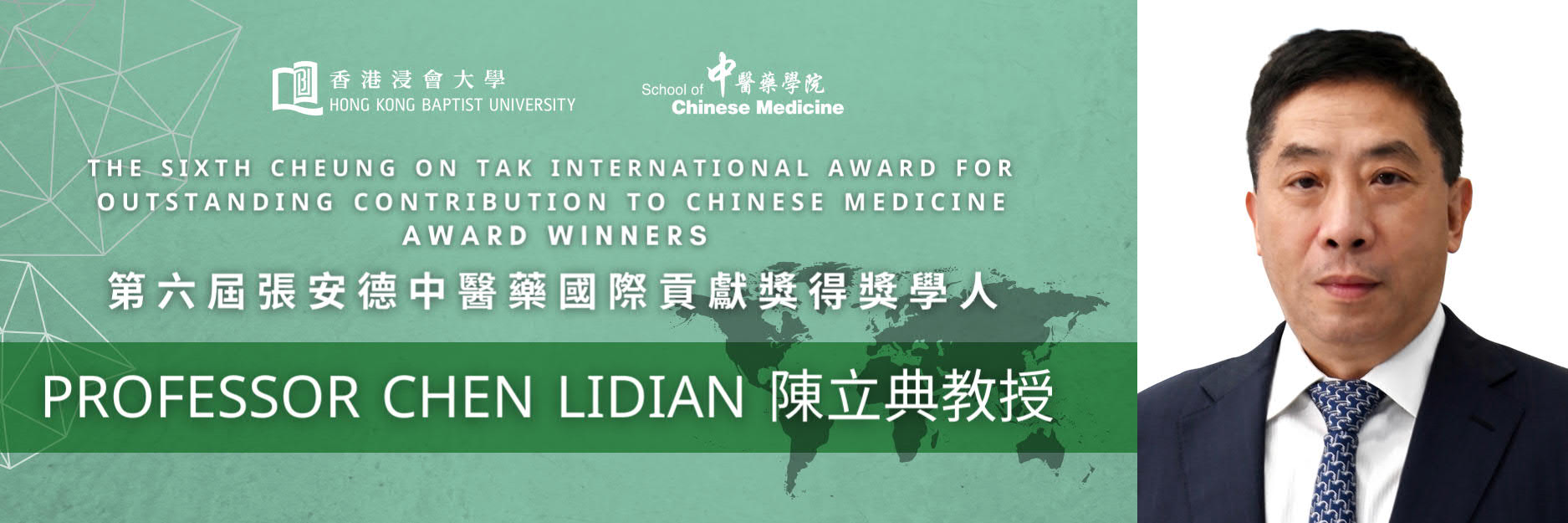Professor CHEN Lidian
Professor CHEN Lidian (6th COT Award Winner)


Affiliation at the time of the Award:
- Specialist in Integrated Chinese and Western Medicine in Rehabilitation Sciences
- Academician of the International Eurasian Academy of Sciences (IEAS)
- Executive Member of International Society of Physical and Rehabilitation Medicine (ISPRM)
- President of Chinese Association of Rehabilitation Medicine
- Vice-Chairman of China Association of Medical Equipment
- Scholar of "Hundreds of Millions" Talents Project for Traditional Chinese Medicine Inheritance and Innovation (Qi Huang Scholar)
- Candidate of the National Hundreds of Millions Talents Project
Biography
As a pioneer and leading figure of integrated traditional Chinese and Western medicine in rehabilitation, Professor Chen Lidian has conducted an array of original and systematic research with remarkable results in the fields of Chinese rehabilitation theoretical research, technical practice, and development of rehabilitation equipment. He innovated the traditional Chinese medicine (TCM) rehabilitation theory and its evaluation system for motor dysfunction, developed the first Chinese version of stroke assessment tool and made breakthroughs in a number of key technologies for integrated traditional Chinese and Western medicine in rehabilitation, and systematically elaborated their modern scientific mechanisms. In addition, Professor Chen has been involved in various cutting-edge works, such as taking a leading role in the development of the first domestic rehabilitation robot with Independent Intellectual Property Rights, establishing a new mode of rehabilitation with the use of integrated traditional Chinese and Western medicine, as well as formulating its clinical practice and standards. These technologies and methods have been widely adopted in the rehabilitation medicine guidelines in Canada and Mainland China and have also been used by rehabilitation service providers such as hospitals and communal institutions on the Mainland and in some European countries (e.g. Germany and Switzerland).
Professor Chen's significant contributions to the development of integrated traditional Chinese and Western medicine in rehabilitation are highly recognised. He is the only representative from China being elected the Executive Committee member of International Society of Physical and Rehabilitation Medicine (ISPRM). He actively promotes TCM rehabilitation theory and fosters the internationalisation of TCM rehabilitation, advancing the exchange and integration of traditional Chinese and Western rehabilitation medicine in rehabilitation.
Professor Chen has won a string of awards in the capacity of Principal Investigator, including Second Prize of The State Scientific and Technological Progress Award, First Prize of the Science and Technology Award by China Association of Integrative Medicine, First Prize of the Science and Technology Award by the Chinese Association of Rehabilitation Medicine, First Prize of the Popular Science Works Award by China Association of Chinese Medicine, Second Prize of National Teaching Achievement Award, Special Prize of Teaching Achievement in Fujian Province and First Prize of Teaching Achievement Award by the Chinese Association of Rehabilitation Medicine.